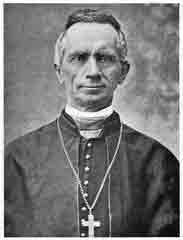William Henry Elder
| William Henry Elder | |
|---|---|
| Bishop of Natchez | |
 |
|
| Church | Roman Catholicism |
| See | Diocese of Natchez |
| In office | 1857–1880 |
| Predecessor | James Oliver Van de Velde |
| Successor | Francis Janssens |
| Orders | |
| Ordination | March 29, 1846 |
| Personal details | |
| Born | March 22, 1819 Baltimore, Maryland |
| Died | October 31, 1904 Cincinnati, Ohio |
| Previous post |
Diocese of Natchez Bishop of Natchez Diocese of Cincinnati Bishop of Cincinnati Bishop |
William Henry Elder (22 March, 1819 – 31 October, 1904) was a U.S. archbishop. He served as the Roman Catholic Bishop of Natchez from 1857 to 1880 and the Roman Catholic Bishop of Cincinnati between 1883 and 1904.
William Henry Elder was born in Baltimore, Maryland, on March 22, 1819. His father, Basil Elder, was a descendant of William Elder (1681–1714), a Catholic immigrant from England to Maryland (United States) in colonial times. His mother Elisabeth Miles (née Snowden) Elder was also Catholic.
In 1831 Elder entered Mt. St. Mary's College, in Emmitsburg, Maryland, then presided over by the Rev. John Baptist Purcell. He afterward became the second bishop, and later the first Archbishop of Cincinnati. Elder graduated in 1837 and entered the seminary. In 1842 he was sent to Urban College in Rome for further studies, where he continued his training for about four more years.
Elder was ordained a priest in Rome, March 29, 1846. He became professor at the seminary at Emmitsburg, Maryland, a position he held until appointed Roman Catholic Bishop of Natchez, for which he was consecrated in the cathedral of Baltimore by Archbishop Francis Kenrick, on May 3, 1857. The diocese was geographically huge, comprising the entire state of Mississippi.
After the Union occupation of Natchez, in 1864 Elder became prominent for refusing to obey the order of the Brigadier General James Madison Tuttle to have prayers for the President of the United States recited publicly in the churches of his diocese. Elder wrote a letter to President Abraham Lincoln regarding the matter. Senator Francis Kernan responded, saying he met with Secretary of War Edwin M. Stanton regarding the matter. Stanton said he would communicate to Tuttle to remedy the situation so there would be not further interference. Elder subsequently wrote thanking Stanton for the protection extended to religious freedom, and asking that the ruling be made known to other commanders so that they also would not interfere with religious freedoms.
...
Wikipedia
